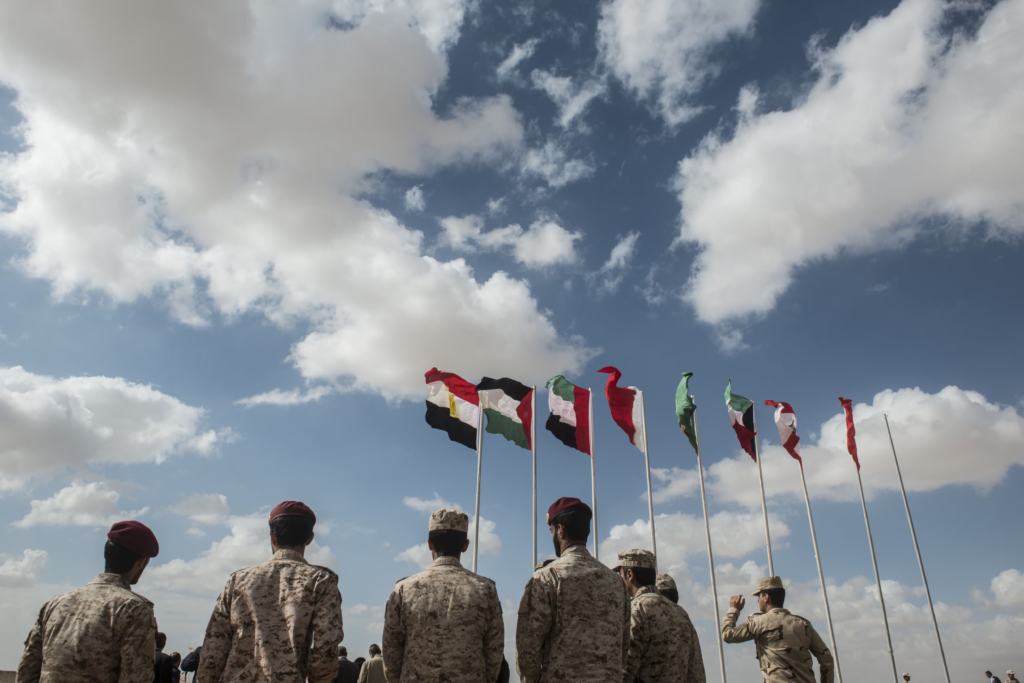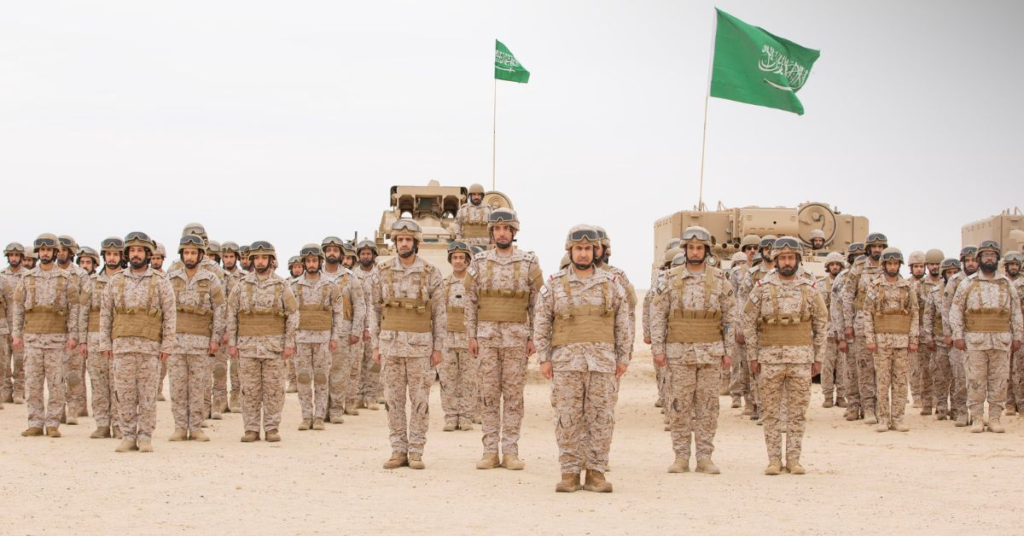Why 2025 Is Crucial for Saudi Arabia’s Military Technology Expansion is a question that many international analysts and defense experts are asking. The year marks a significant shift in the kingdom’s strategic direction as it moves beyond traditional oil-based influence to become a leader in regional and global military technology.
Saudi Arabia has always invested in military strength, but 2025 will be different. It is the year that several long-term plans, alliances, and technology transfers are expected to take shape. The kingdom is not just buying weapons—it is building a homegrown defense industry that could position it among the world’s most advanced military powers.
Vision 2030 Pushes Military Innovation

At the heart of this transformation is the Saudi Vision 2030, which includes strong support for defense sector growth. In 2025, the halfway mark to the 2030 goal, Saudi Arabia aims to show measurable progress. The goal is to localize 50% of its military spending, a move that would dramatically reduce dependency on foreign suppliers.
With the support of Vision 2030, the country is investing in local research, military education, and industrial zones dedicated to advanced weapon systems, cybersecurity, and AI-powered defense.
Launch of New Defense Facilities
2025 is set to witness the launch of several new military production hubs, including drone assembly lines, missile system manufacturing centers, and AI defense software labs. These facilities will be operated by both Saudi experts and foreign partners under technology transfer agreements.
One of the most anticipated launches is a joint venture with European firms to co-develop electronic warfare tools that will provide Saudi forces with better intelligence, surveillance, and reconnaissance (ISR) capabilities.
This is a step forward in making Saudi Arabia a self-sufficient military power and a future arms exporter in the Middle East.
Strategic Partnerships Strengthen Capabilities
In 2025, Saudi Arabia is expected to strengthen its defense partnerships with countries like the United States, China, and Turkey. These partnerships include not just arms purchases, but also critical technology transfer and local joint ventures.
A key example is the continued cooperation with the U.S. defense sector, which may lead to the setup of advanced training centers inside Saudi Arabia. These will train Saudi soldiers and engineers on the latest military technologies including unmanned aerial vehicles (UAVs), AI, robotics, and cybersecurity defense strategies.
Another vital partnership involves Turkish drone makers, who are already in talks with Saudi officials to begin local manufacturing of drones in the kingdom by mid-2025.
Domestic Defense Talent on the Rise
Why 2025 Is Crucial for Saudi Arabia’s Military Technology Expansion also links directly to the development of domestic military talent. In 2025, Saudi universities will graduate the first wave of students from new defense-focused programs.
These students are trained in modern warfare strategies, AI defense systems, and military-grade cybersecurity. The rise of a homegrown defense workforce will make it easier for the country to maintain and upgrade its military technologies without heavy foreign dependence.
With this, the kingdom plans to boost local innovation, create thousands of jobs, and retain skilled professionals in its national defense ecosystem.
Cyber and AI Technologies Take Center Stage
The Saudi government has prioritized cyber and AI as core technologies for military advancement. In 2025, several key AI projects are set to go live, including smart border control, predictive threat analysis, and automated battlefield support systems.
Saudi Arabia’s military AI systems are designed to integrate with existing defense infrastructure to improve decision-making speed and accuracy. These systems will also help reduce risks to human soldiers by managing drone fleets and automated ground vehicles.
Cybersecurity will also receive a massive upgrade. 2025 will see the rollout of a national military cybersecurity command center that will protect sensitive information and respond to any digital threats from enemy states or hacker groups.
Regional Power and Global Influence
Why 2025 Is Crucial for Saudi Arabia’s Military Technology Expansion is not just about internal growth—it’s also about positioning the country as a dominant force in the region. Saudi Arabia wants to match or surpass regional rivals in terms of defense capabilities.
With ongoing instability in the region, Saudi Arabia’s military power is being viewed as a stabilizing force. The country wants to protect its borders, deter hostile neighbors, and secure its economic investments both locally and abroad.
2025 will be a year of visible military exercises, new weapons trials, and increased presence in international defense exhibitions to showcase Saudi-made technology.
Increased Military Spending with Purpose

While Saudi Arabia has always been one of the top military spenders, 2025 spending will be more targeted and strategic. The focus is on smart weapons, digital defense systems, and localized production instead of mass imports.
The budget allocation for the defense sector in 2025 includes a heavy emphasis on innovation, such as investing in satellite communications, autonomous combat vehicles, and anti-drone systems.
This spending strategy will allow Saudi Arabia to not only boost defense but also become a net contributor to regional security, making it a more trusted and influential partner on the global stage.
Final Thoughts
Why 2025 Is Crucial for Saudi Arabia’s Military Technology Expansion lies in its potential to transform the kingdom into a leading defense technology hub. Through a combination of Vision 2030 goals, strategic international partnerships, investment in AI and cyber defense, and a growing local talent pool, the country is rapidly building a smarter, more self-reliant military force.
By the end of 2025, Saudi Arabia aims to have a stronger and more modern military with reduced foreign dependence and improved readiness to face future threats. This year could mark the start of a new chapter where Saudi Arabia not only protects its own borders but also helps shape the future of military technology in the Middle East and beyond.
Also Read – Saudi Arabia’s Technology Plans May Collapse Without Action by 2028



